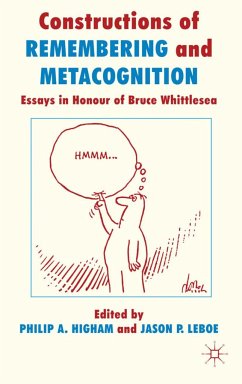
Collective Remembering
Versandkostenfrei!
Versandfertig in 6-10 Tagen
50,99 €
inkl. MwSt.

PAYBACK Punkte
25 °P sammeln!
Profoundly challenging the traditional view of memory as the product and property of individual minds, Collective Remembering is concerned with remembering and forgetting as socially constituted activities. The starting point is a conceptualization of remembering and forgetting as forms of social action. Individual memories cannot be understood as `internal mental processes' which occur independently of the interpretive and communicative practices which characterize a particular society or culture. Individuals `read', account for and negotiate their memories within the pragmatics of social lif...
Profoundly challenging the traditional view of memory as the product and property of individual minds, Collective Remembering is concerned with remembering and forgetting as socially constituted activities. The starting point is a conceptualization of remembering and forgetting as forms of social action. Individual memories cannot be understood as `internal mental processes' which occur independently of the interpretive and communicative practices which characterize a particular society or culture. Individuals `read', account for and negotiate their memories within the pragmatics of social life. Contributions also explore the collective processes through which communities' social memories are created, sustained and transformed - in families, other groups and cultures, organizations.














